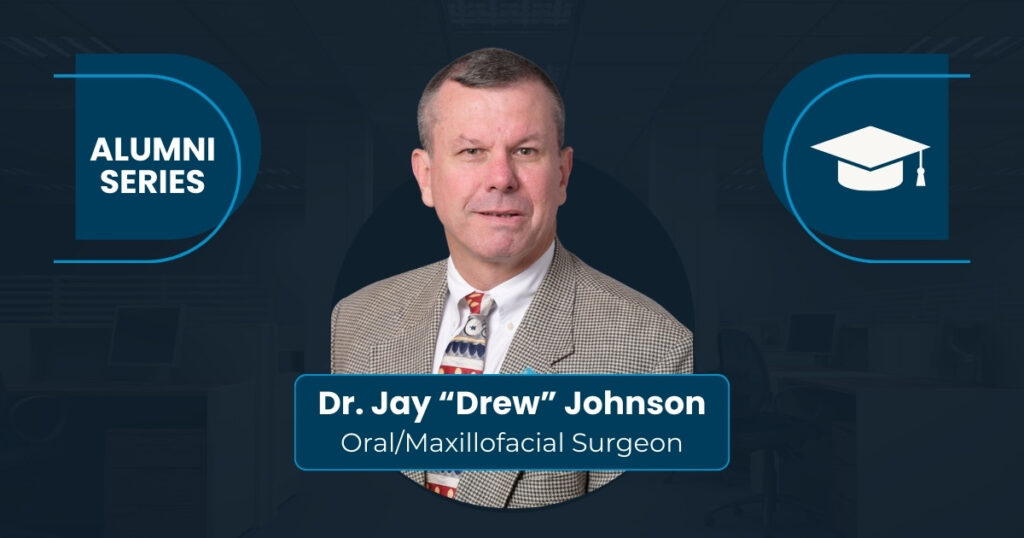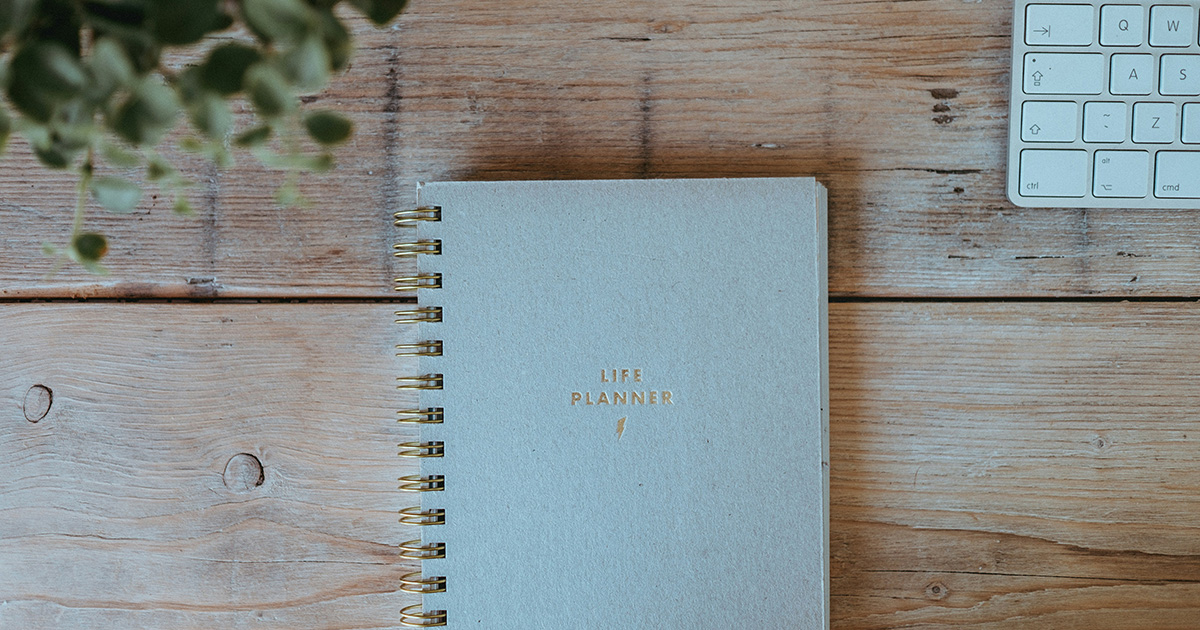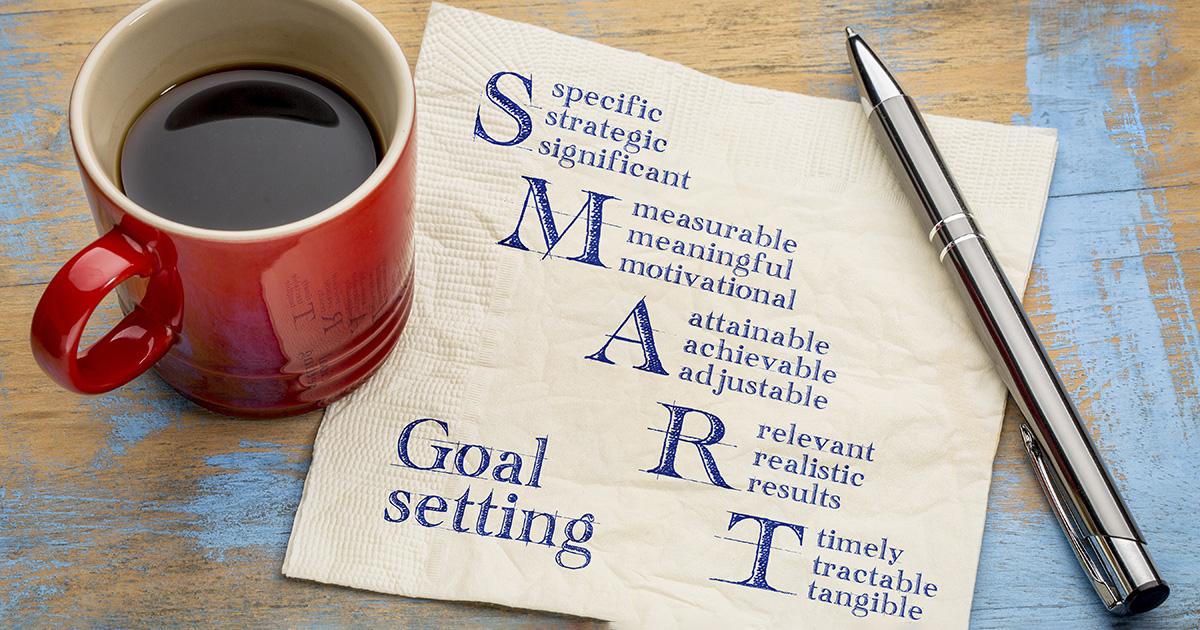What does it take to pass dental school and become a practicing maxillofacial surgeon? Dr. Jay “Drew” Johnson, a Rockledge local, credits his success to the academic foundation he built at EFSC (then BCC), where he received his Associate in Arts. Looking back over 30 years of field experience, Dr. Drew shares about his path through the medical field, while giving advice to current and future students interested in following his footsteps.
Tell me a little about your background.
I’m born and raised in Rockledge, FL. I’m as local as you can get. I’m the son of two hardworking people and married a local girl. I’m the first person in my immediate family that ever even went to college.
I finished at BCC/EFSC with my AA. My undergraduate degree at University of Florida was in microbiology and cell science. That allowed me to get all the prerequisites for dental school. I finished in Gainesville in May 1987. Then, in August, I started dental school at the Medical College of Virginia, which is part of Virginia Commonwealth University. Right after I finished, I applied to oral surgery training programs. I had to interview all throughout the country. First, I listed my top five programs, and those programs listed their top five candidates. Then, I got matched up with University of Cincinnati Medical Center.
What is your occupation like? What problems do you solve?
I am an oral and maxillofacial surgeon, which is a recognized specialty of dentistry. I don’t clean people’s teeth and do fillings and crowns. Instead, I do surgical procedures on the face, mouth, and jaws. I take out wisdom teeth, do dental implants, and work with oral pathology, lumps and bumps, and oral cancers.
My specialty bridges the gap a little bit between dentistry and medicine. In my younger days, I used to take trauma call at the hospital. I did that for 25 years, but I’ve paired my practice down to what I really enjoy.
How did you become interested in your profession?
If you would’ve asked me when I was about five or six years old, I would have told you that I wanted to be a dentist. It’s really the only thing I ever really seriously considered. I had a few family friends that were dentists that didn’t live close to me, but influenced me a little bit. And I had a good dentist here as a young man. He treated me very well.
In my job growing up, I worked a lot at Rockledge Country Club. I was around people who were successful and they were good to me. I thought, “I want to be successful and I want to be able to help young people.”
Today, I have lots of kids that shadow me who think they’re interested in going to dental school. I really enjoy that. There’s a possibility I may teach part-time when I’m done.
What was your experience at EFSC?
After graduating from Rockledge, I was not ready to go to a big four-year school. I don’t think I would have done well, and I’m thankful because I really feel like EFSC (then BCC) helped me develop my study habits. Although I was never a bad student in high school, I actually turned into a much better student and a much more serious student in college, and I credit EFSC for making me that way.
I can remember hearing about people going off to big four-year schools, and almost having a feeling of inferiority. Looking back now, that’s so silly. God put me exactly where I needed to be, and I think that was exactly what I needed. When I got my AA degree, it was like I couldn’t be refused at any state school. I could have gone to Florida State or USF. Admission was guaranteed. It was a great deal for me.
What were some of your biggest influences at EFSC?
Doctor Max King had a big influence on me. I knew him from the golf course and from the Country Club community. When I needed letters of recommendation to go to dental school, I contacted him, and he had me come to his office in Cocoa. He sat down with me, and acted like he had all the time in the world to talk to me. I remember thinking, “This is such an important guy! He’s got to have a million things to do, but he’s acting like he doesn’t have anything else to do all day.” And I’m sure that wasn’t true. But that’s the way it made me feel. I remember that. And I’ll never forget that.
What big challenges did you face during dental school?
At first, I had to really buckle down. As you take some of these advanced classes, you can’t fake that. I learned how to be a more serious student, turn off the TV, put the distractions away, and study.
I love the sciences, obviously, but I never really enjoyed any math classes that I took. When I finished my calculus class, that was the happiest day of my life.
I was a good student when I started dental school in 1987. But when you get there, you think, “Everybody here is smart, or they wouldn’t have gotten in dental school, right?” Then you wonder, “Am I smart enough to be a dentist?”
The first class at my dental school was anatomy and it was the most intense class I’ve ever been a part of in my life. It’s the only class we had for six weeks, all day, every day. There was some self-doubt. I remember thinking nervously, “What if I flunk out? What if I just can’t academically cut it?” That turned out to be kind of silly, but I remember thinking that, especially in the first month.
How did you get your first professional opportunity in your career?
Once I finish my oral surgery training, I went into practice with an established oral surgeon in Cocoa. His name was Jerry Bird, and he took me in as an associate. We formed a two-man oral surgery practice. Then a couple years later, I became part owner of that practice — a partner instead of an employee. On September 1st of 2020, Jerry had a very serious bicycle wreck and ended up having a bad head injury. He’s actually made quite a remarkable recovery, but he could never come back to work. That was probably the most stressful part of my life. We had built a busy two-man practice that suddenly turned into a ridiculously busy one-man practice. It was a challenge, both physically and mentally.
What do you love most about your work?
The great thing about my specialty is no day is the same. Sometimes I’ll have a big implant case and I’ll see one patient from 8:00 in the morning to 2:00 in the afternoon. Then, I have days where I do 10 smaller surgeries instead. I run a referral-based practice and get some patients through word of mouth. When you walk in the door, you never know what’s ahead of you. That’s exciting.
Some of the trauma patients that we put back together are very appreciative. I just love getting letters and cards in the mail. I have to credit my staff. It’s a team effort because the first impression when you go into your doctor’s office is not from the doctor, but from the staff.
What advice would you give to current EFSC students?
Learn how to be a good student and develop good study habits. Pick a degree path that has lots of employment doors. At some point you’re going to get out in the real world, make a living, put food on your table, and pay your rent or mortgage. Not everybody needs to do what I did — going to college. Trade school, or learning a trade, is a great option. Work backwards. What do you see yourself doing? Now, do you need a college degree for that? Learn how to be learn how to be a good student but keep your eye on the prize. The prize is being able to make your way through life.
- 5 Easy Tips for Mastering Workplace Professionalism - April 9, 2025
- EFSC’s Honors Program Helps Students Achieve Dreams - April 2, 2025
- Why Send a “Thank You” Email after an Interview? - March 26, 2025




